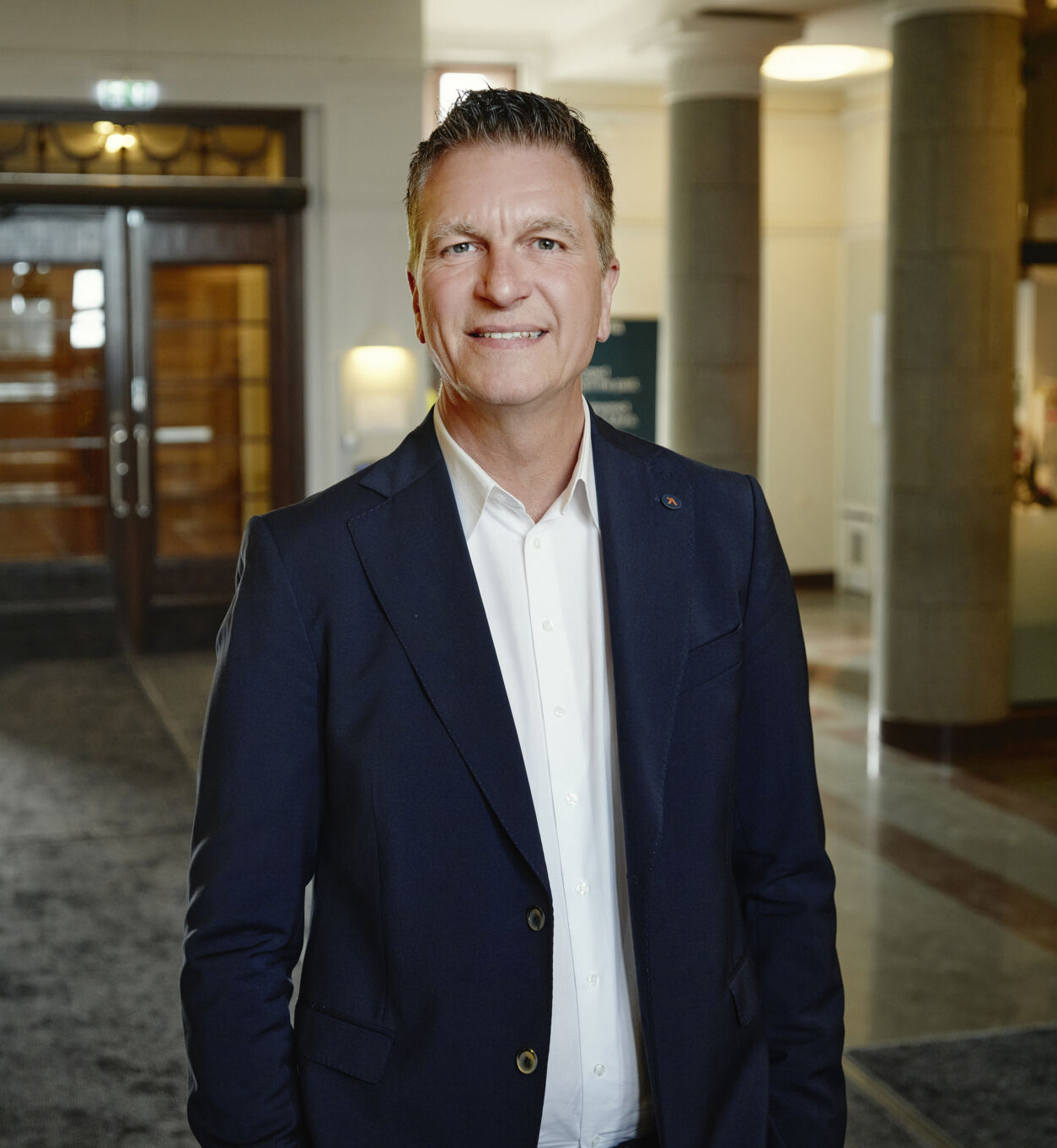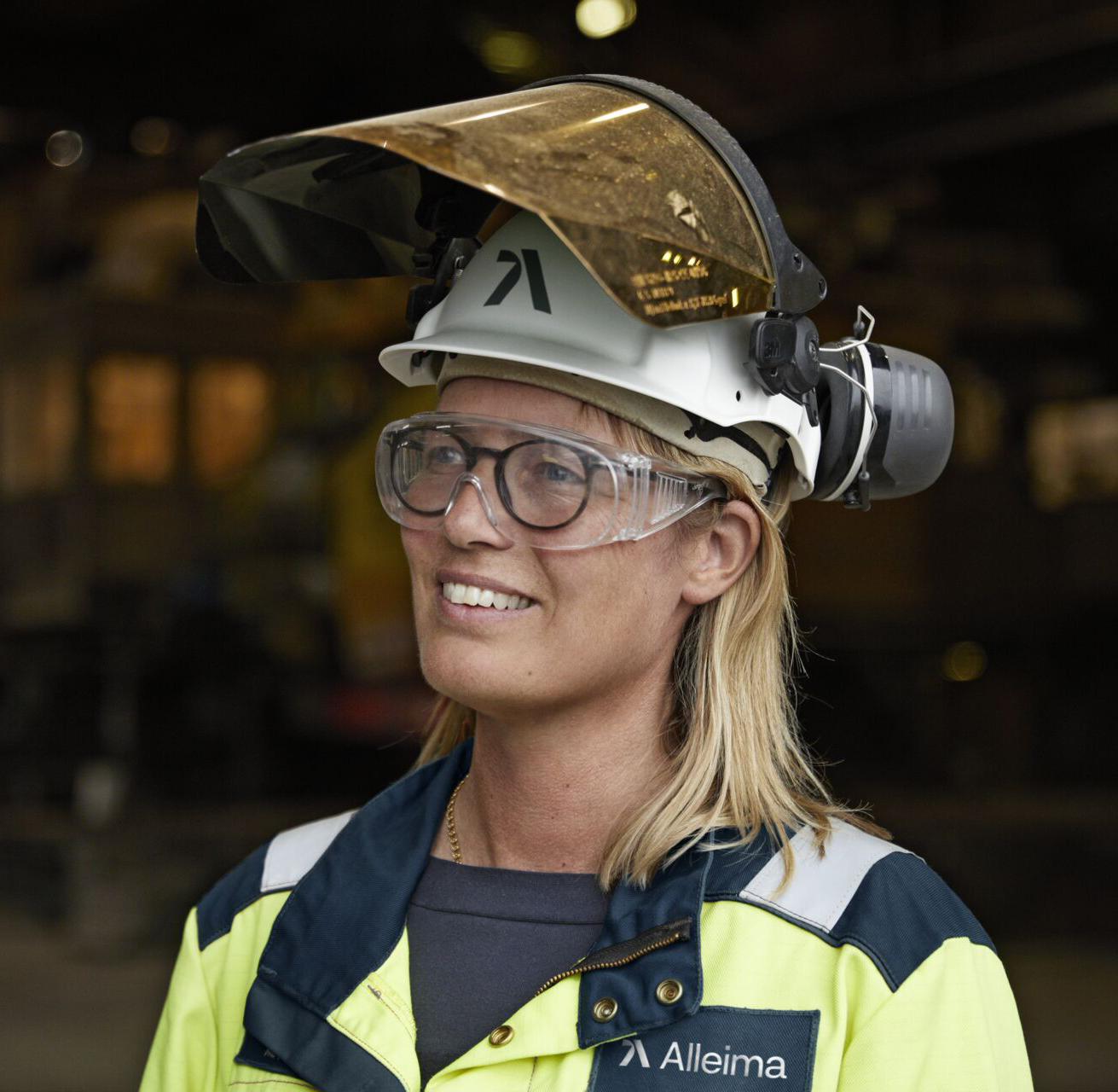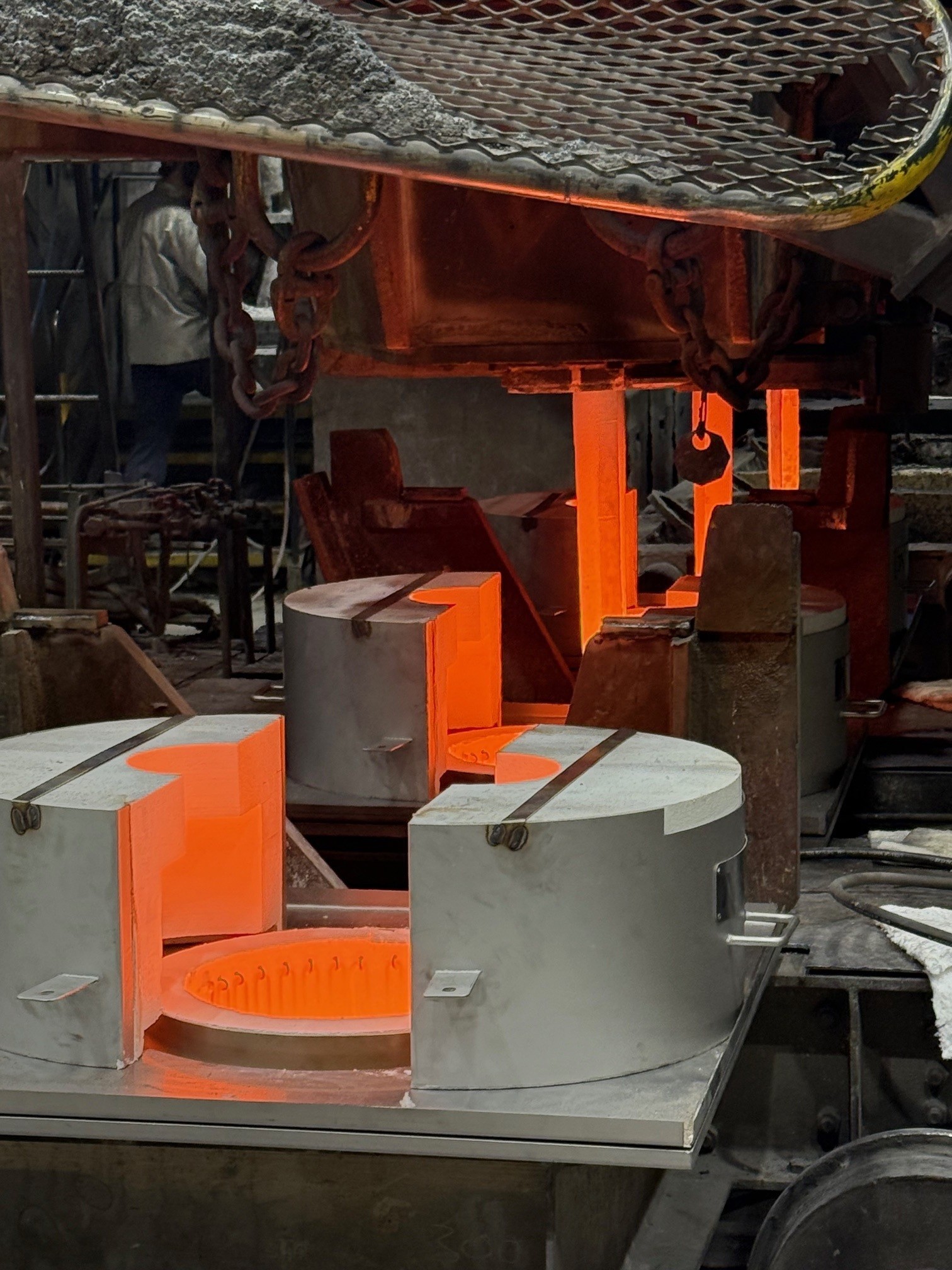For a company already operating on a scrap-based production model with relatively low carbon emissions, this electrification journey is driven by seeking to enhance customer value further.
 Håkan Sundström, Head of Sustainability and Governance, Alleima.“We are a materials technology company, specialized in stainless steels and special alloys. Since we are scrap-based in our production and use an electric arc furnace instead of blast furnaces, which are used in more traditional steel production, our CO2 emissions are relatively low compared to the steel industry on average. We also use 100% fossil-free electricity in our production in Sandviken,” says Håkan Sundström, Head of Sustainability and Governance at Alleima.
Håkan Sundström, Head of Sustainability and Governance, Alleima.“We are a materials technology company, specialized in stainless steels and special alloys. Since we are scrap-based in our production and use an electric arc furnace instead of blast furnaces, which are used in more traditional steel production, our CO2 emissions are relatively low compared to the steel industry on average. We also use 100% fossil-free electricity in our production in Sandviken,” says Håkan Sundström, Head of Sustainability and Governance at Alleima.
“Currently, the entire steel industry is going through a transition towards becoming less dependent on fossil fuels. In Europe, the steel industry accounts for roughly 5 % of CO2 emissions, and 7 % globally. To give some perspective, our emissions stand for 0.2% of the CO2 emissions in Sweden. But even from that low baseline, we’re pushing hard to decarbonize. This is an integral part of our premium offering.”
According to Sundström, 80 percent of Alleima’s direct emissions come from operations in Sandviken, and the surprising culprit isn’t melting. “Heat treatment is the area where the bulk of emissions comes from. That’s where electrification can make the biggest difference,” he explains.
The pilot project: small in size, big in significance
 Maria Mueller, Steel Plant Manager, Alleima.In the recently completed project, the focus was on preheaters, which were previously powered by three gas burners and are now fully electric.
Maria Mueller, Steel Plant Manager, Alleima.In the recently completed project, the focus was on preheaters, which were previously powered by three gas burners and are now fully electric.
“Since this was a new technology for us, we started with a prototype to ensure the design and performance were correct,” says Maria Mueller, Steel Plant Manager.
“Once it proved successful, we implemented the solution across all three heaters. The change is already providing benefits. like increased efficiency and cost savings. It’s also noticeably quieter in the continuous caster area now that the burners are gone, which improves the working environment.”
For Mueller, collaborating with Kanthal filled a critical knowledge gap. “We had limited internal know-how about heating elements: how to source them and how they function. Kanthal supported us throughout, and the result is even better than we anticipated.”
Why electrification and why now?
To succeed with the company’s ambitious environmental targets, Alleima will focus on various technical solutions for electrification and energy efficiency, as well as hydrogen and biogas. Håkan Sundström explains:
“The long-term plan in Sandviken follows a deliberate, staged approach. We are using electrification where it makes the most sense operationally,” says Sundström. “These are critical processes, so we are starting with lower-risk systems to build competence and ensure stability as we scale.”
Building competence, not just cutting emissions
Alleima considers electrification as a strategic shift that builds internal capability and competitive advantage.
 Alleima’s facility in Sandviken, Sweden, where gas-fired preheaters have been replaced with Kanthal’s electric solution to support decarbonization.“We have already reduced our Scope 1 and 2 emissions by 41 percent (Q3 2025) compared to 2019, and we’re ahead of our 2030 target,” claims Sundström.
Alleima’s facility in Sandviken, Sweden, where gas-fired preheaters have been replaced with Kanthal’s electric solution to support decarbonization.“We have already reduced our Scope 1 and 2 emissions by 41 percent (Q3 2025) compared to 2019, and we’re ahead of our 2030 target,” claims Sundström.
The significance of the collaboration with Kanthal goes beyond its physical scope. As per Mueller, Alleima hasn’t found any comparable examples of successful preheater electrification in similar steel operations.
“It is a small step, but an important step for us and a learning journey.”
Sundström adds, “We produce around 200 different alloys a year, so our logistics are complex. Heat treatments will always be needed. But this isn’t unique to us. Most companies in this space face similar issues, and from a technical perspective, there are opportunities for electrification.”
As the work continues, the project enables Alleima to take strategic steps towards electrification of relevant heating processes, guided by data, enabled by partnerships, and grounded in engineering reality. “We’re not chasing headlines. We’re doing the hard work. In the end, it is about executing on our strategic target to reduce our carbon footprint for the benefit of the customer, and we are continuously evaluating the best ways to do that. The collaboration with Kanthal is a prime example of how to excel on our journey,” Sundström concludes.